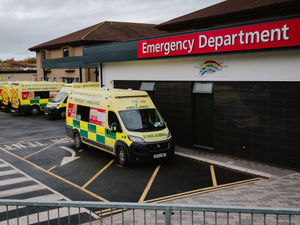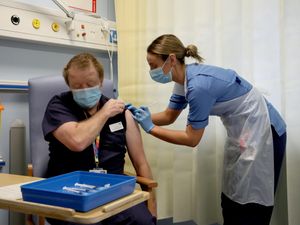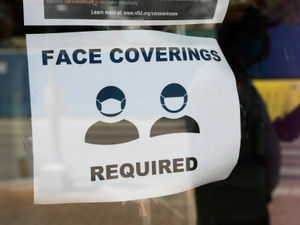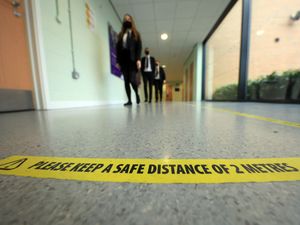More than half of UK population has had first Covid-19 jab, figures show
The UK population is estimated to be 66,796,807.
More than half of the UK’s total population has received a first dose of a coronavirus vaccine, figures show.
Government data up to April 23 shows that of the 45,580,400 jabs given in the UK so far, 33,508,590 were first doses – a rise of 119,953 on the previous day.
The UK population is estimated to be 66,796,807, so the latest figures show that more than half the population have now had a first dose of a coronavirus vaccine.
NHS England data up to April 23 shows that of the 38,189,536 total doses given in England so far, 28,102,852 were first doses – a rise of 107,656 on the previous day.
Anyone aged 45 and over can still arrange their jab in England, as well as people who are clinically vulnerable or health and care workers.
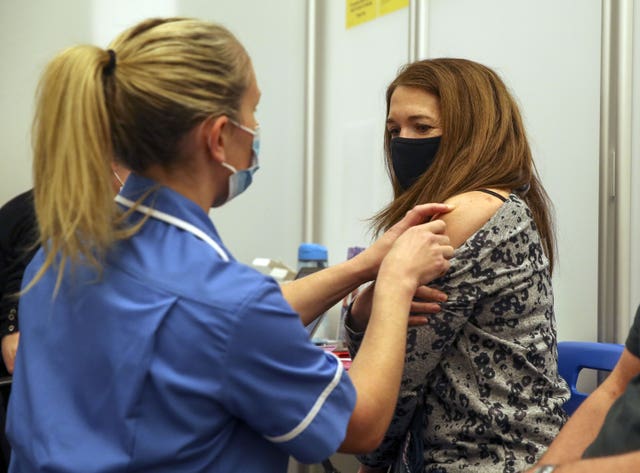
Health Secretary Matt Hancock said he is “absolutely delighted” about reaching the “brilliant” milestone, adding: “This vaccination programme is our way out of this pandemic. It’s clearly saving lives.”
Mr Hancock said he is thrilled that the uptake amongst everyone aged 50 and above is over 95%.
Deputy chief executive of NHS Providers Saffron Cordery said: “It is an astonishing achievement that half of the UK population has now had at least one Covid-19 jab.
“In under five months, frontline NHS staff in trusts and primary care and volunteers have done an incredible job giving out over 33 million first jabs and more than 11 million second doses.
“We owe each and every one of them our thanks. We’ve made truly significant progress, but we’ve still got a long way to go until we reach our next major milestone of offering all adults their first jab by the end of July.
“In the meantime, we’d encourage everyone to have their Covid-19 vaccines when they are offered it and to continue following the rules on social contact.
“These measures are key to keeping Covid-19 infection rates under control and helping ensure this current lockdown is our last.”
The milestone was announced as anti-lockdown protesters gathered in central London almost two weeks after the easing of coronavirus restrictions.
Demonstrators took to Oxford Street, Park Lane and Hyde Park where they held banners with messages such as: “You don’t need proof to know truth.”
Others said “Covid-19 Vaccine Holocaust” and “No To Vaccine Passports”.
Meanwhile, the Government said a further 32 people had died within 28 days of testing positive for Covid-19 as of Saturday, bringing the UK total to 127,417.
Separate figures published by the UK’s statistics agencies show there have been 151,000 deaths registered in the UK where Covid-19 was mentioned on the death certificate.
The Government also said that, as of 9am on Saturday, there had been a further 2,061 lab-confirmed cases in the UK.
Experts have said vaccines should be able to control the Covid-19 pandemic as they published new real-world UK data showing that jabs slash infection and are likely to cut transmission.
Just one dose of either the Pfizer/BioNTech or Oxford/AstraZeneca vaccine leads to a two-thirds drop in coronavirus cases and is 74% effective against symptomatic infection.
After two doses of Pfizer, there was a 70% reduction in all cases and a 90% drop in symptomatic cases – these are the people who are most likely to transmit coronavirus to others.
Experts are still collecting data on two doses of AstraZeneca but say their findings show that both vaccines work and are effective in the real world.
One of the new studies, which has yet to be peer-reviewed, is based on data from the national Covid-19 Infection Survey run by the University of Oxford and the Office for National Statistics (ONS).
It included a random sample of more than 373,000 adults from across the UK, who produced more than 1.6 million swab test results between December and April.
Professor Sarah Walker, from the University of Oxford and chief investigator for the survey, said the study suggested vaccines could reduce transmission and were also effective against the Kent variant of coronavirus.

